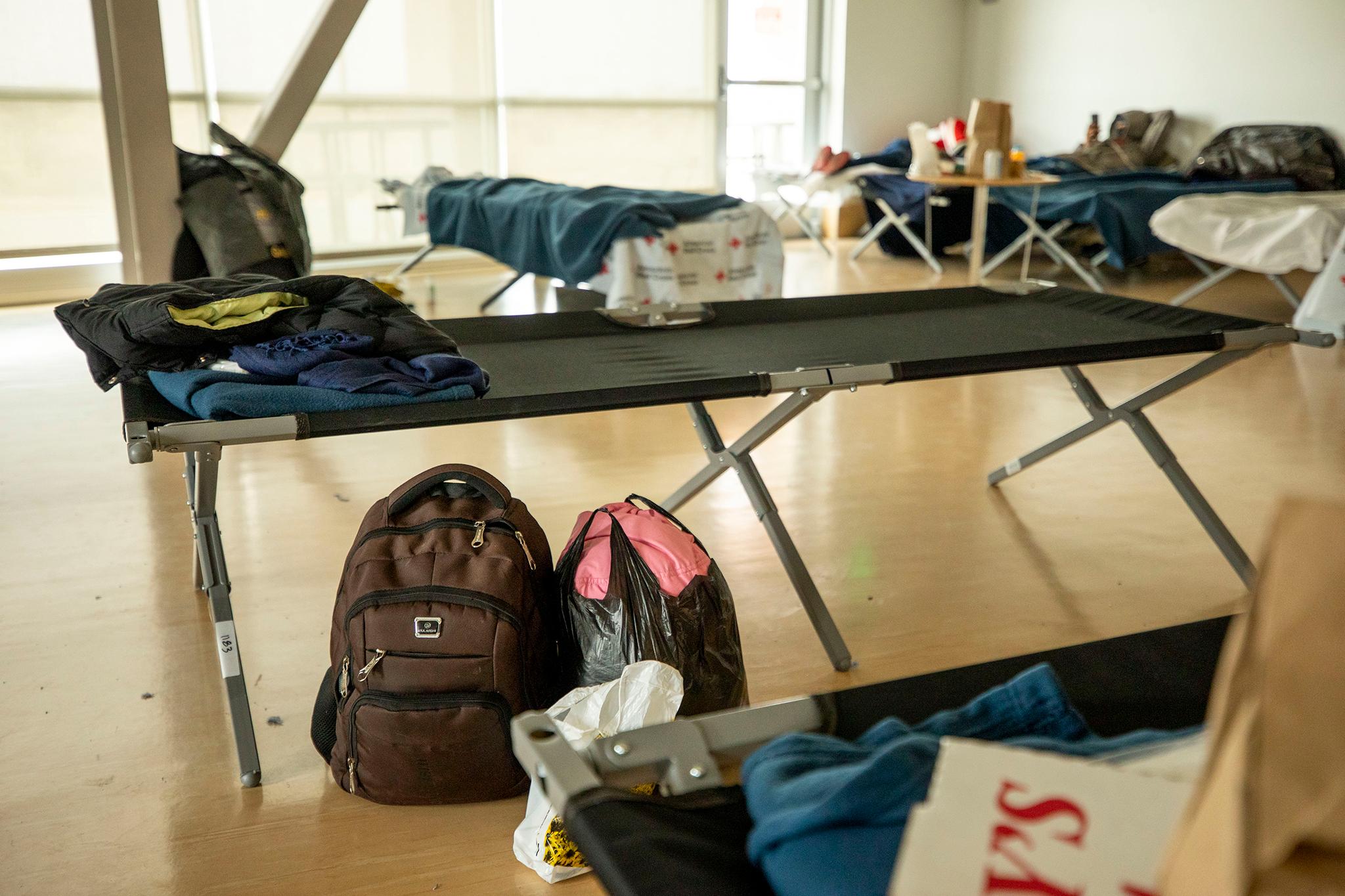At its peak in May, Denver saw more than 300 migrants arriving daily in the city from the U.S.-Mexico border. But by June, arrival numbers dropped off into the dozens.
Now, arrival numbers are trickling back up, in part because of regular bus arrivals from Texas, and in part because overall border crossings rose in July.
Denver is currently sheltering nearly 1,000 people; 74 people arrived Thursday.
"Compared to the end of July, right now we're currently sheltering what is essentially double what we have been sheltering in the last couple of months, so there is an uptick for sure," said Denver Human Services spokesperson Victoria Aguilar.
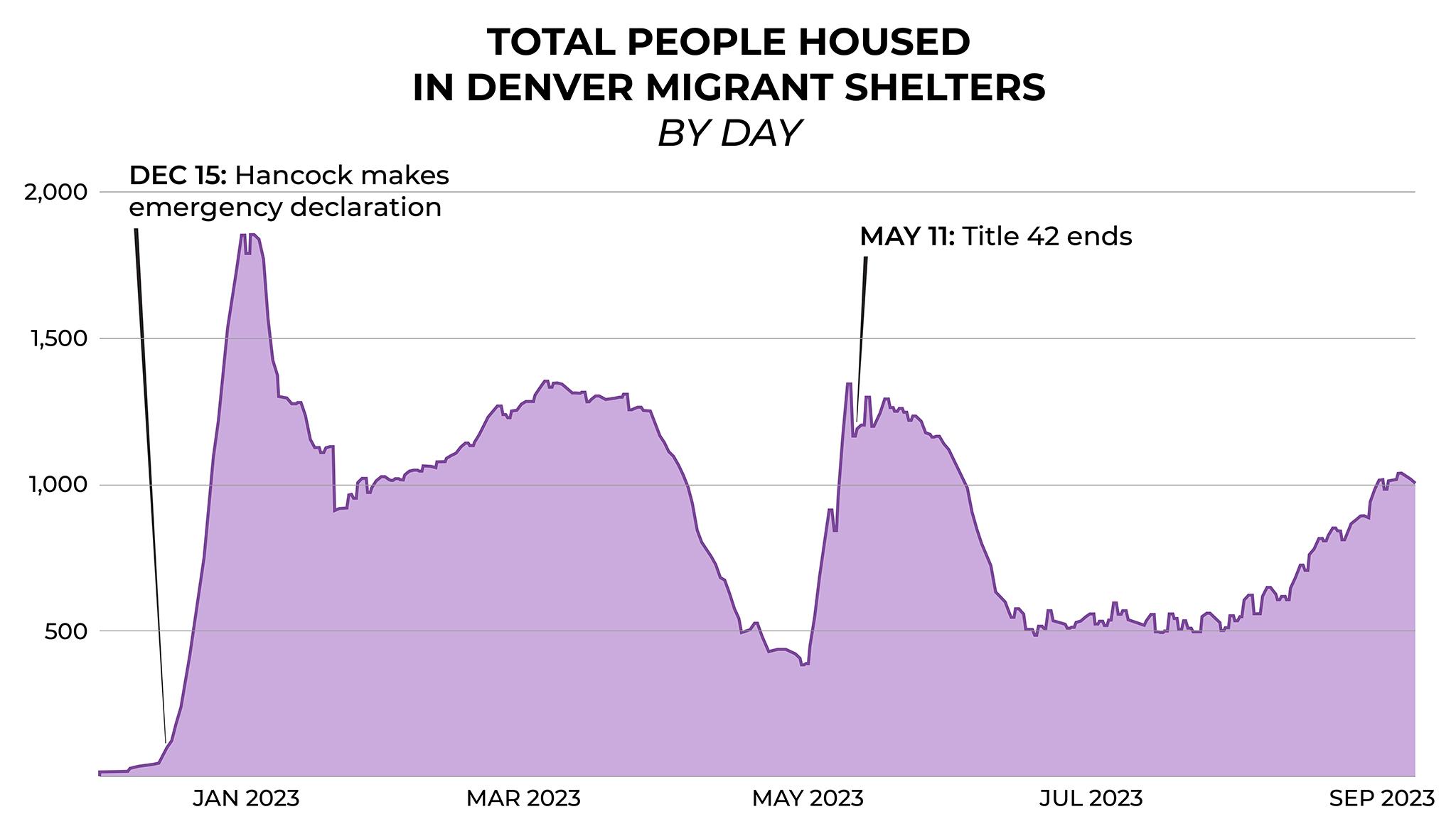
While the increase in arrivals hasn't forced Denver to mobilize its Emergency Operation Center like it did in December and May, that remains an option, Aguilar said, because the city is "beginning to feel this pressure with the number of arrivals."
Denver is also actively working on a request for proposals (RFP) for contractors to take over the city's migrant response and related services. The details of that are not currently available to the public.
"Our current Mayor [Mike] Johnston is definitely working very closely with city agencies, local community leaders, to create this new RFP," she said. "It will definitely make it easier for local, small organizations to bid on more specific services, rather than a full scope of care, which was what the previous RFP looked like."
Former Mayor Michael Hancock pulled that RFP -- a $40 million contract that drew criticism from local advocates, meaning current Mayor Johnston will need to figure out how to accommodate people in the long-term.
In July, Hancock backed off a contract with security firm GardaWorld. The company would have provided sheltering services for migrants and allowed volunteering city workers to get back to their regular responsibilities. Some City Council members and advocates had criticized the contract for its lack of partnership with local nonprofits, and questioned the company's track record.
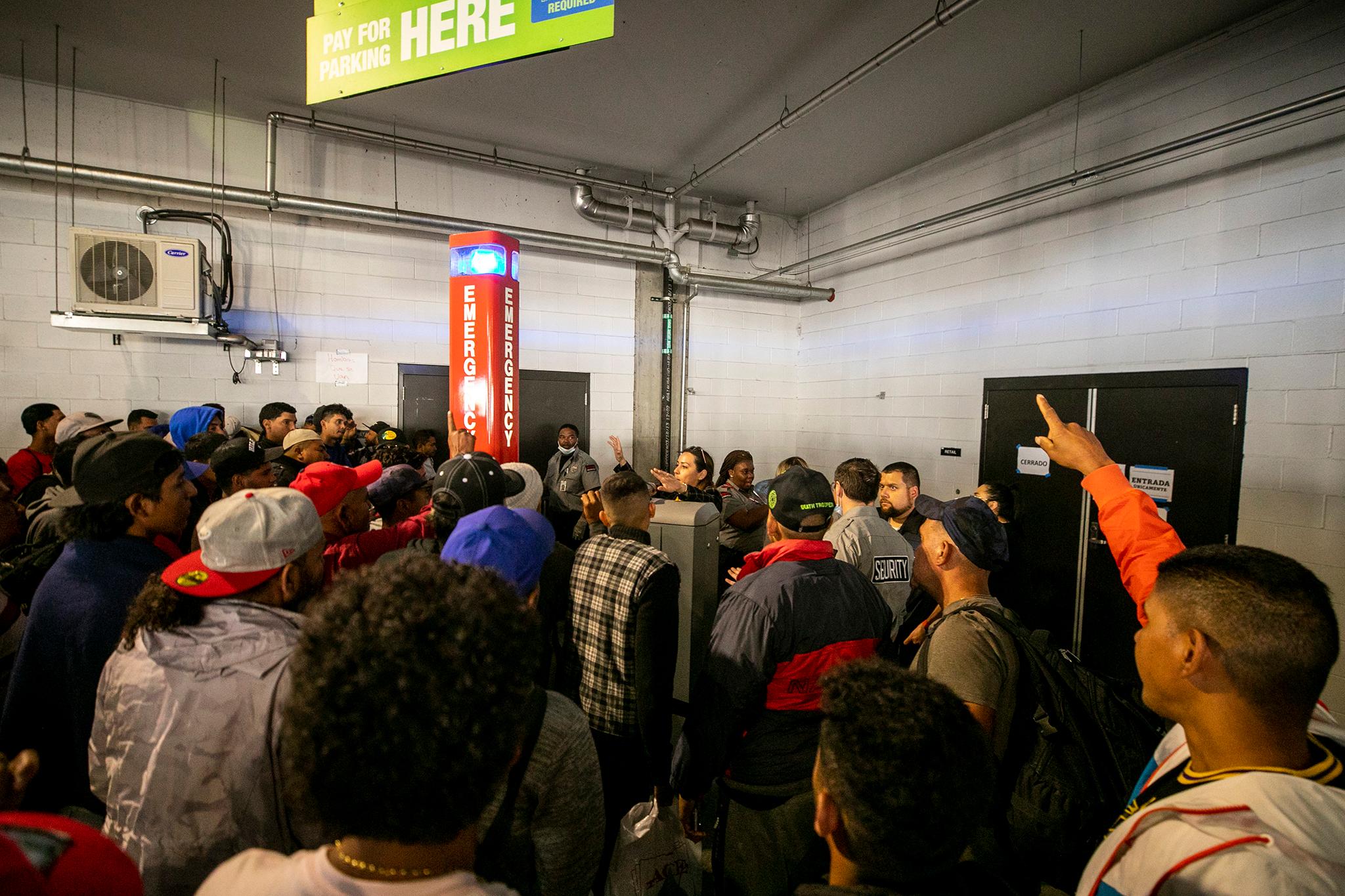
That means Denver's existing resources are being used to cover arrival operations in the near future.
Immigrants rights advocates like Jennifer Piper, with the American Friends Service Committee, are waiting to see where Johnston will take this. She said she was glad the new mayor took feedback from people in her circles, who worked closely with officials on the emergency shelter push earlier this year.
But she added Johnston is approaching a deadline. City employees who work in shelters and have been working on the ongoing declared emergency on homelessness only have so much energy, and she worries about what will happen if arrivals tick up suddenly and Denver isn't ready.
"I am hopeful that the city of Denver will release a new RFP, or grants process, by the end of September," she told us. "They absolutely have to get it across the finish line."
She and other advocates are hoping for a solution that disperses migrant shelters across the city, that also includes some kind of transportation, to lessen impacts on single neighborhoods and their residents.
The city will need to figure out a response because more people are crossing the border, meaning more will come to Denver.
Ariel Ruiz Soto, a policy analyst with the Migration Policy Institute think tank, said migrant arrivals in Denver mirror what's happening across the U.S. southern border. The sharp fall-off of arrivals this summer was related to federal rule changes in May, which made it riskier for people to cross into the country without authorization.
"What happened in May and early June was that people, migrants, were waiting to see how the policies worked, what of the policies would affect them. And then smugglers, how they would adapt their business marketing," he told us.
But apprehensions by U.S. Border Patrol doubled between June and August, according to a report from the Washington Post. Ruiz said that's a sign things are changing again.
"People who have been waiting are now more aware of what their options are, and are now willing to make the journey," he said.
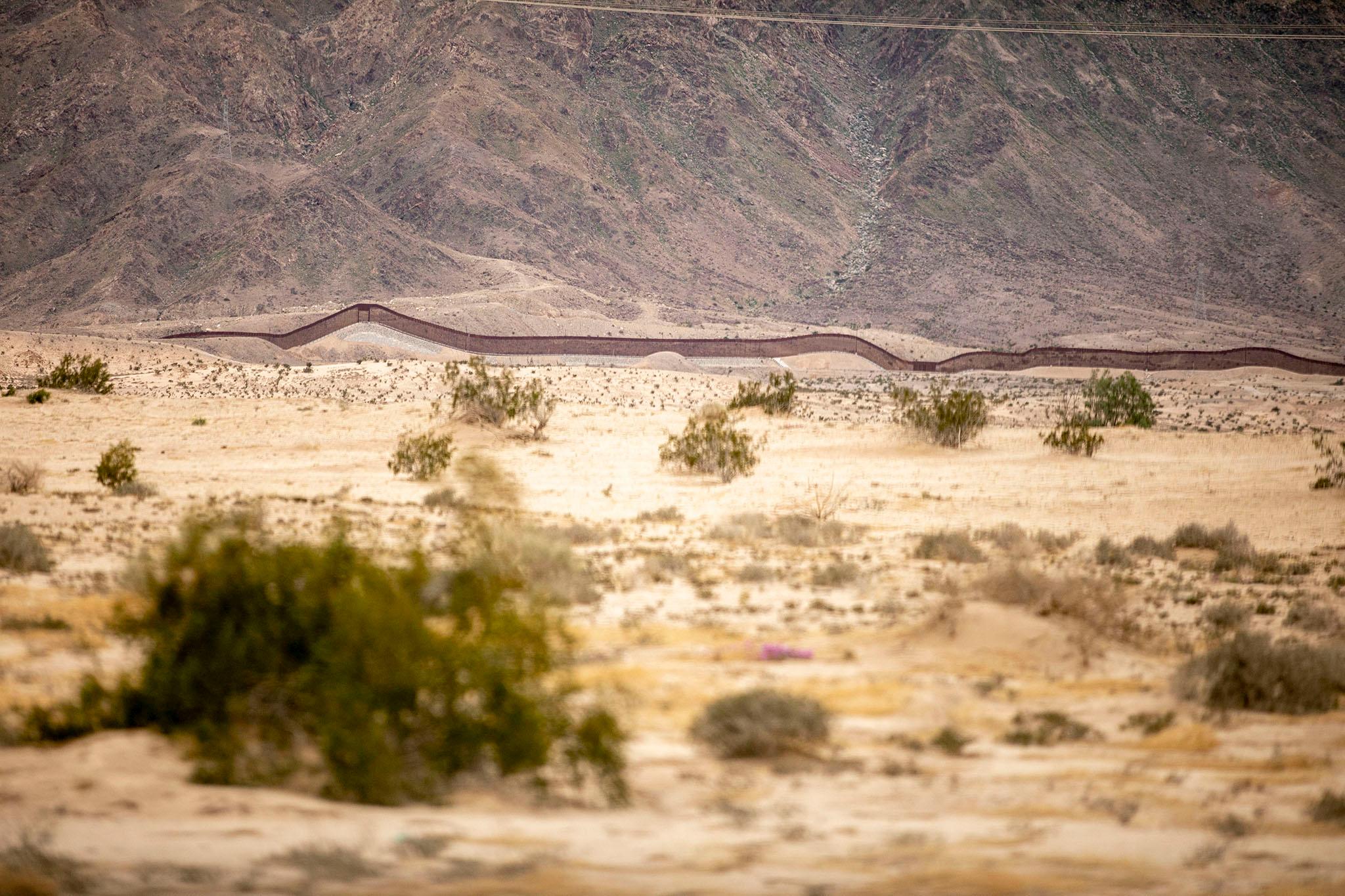
Ruben Garcia, executive director of the nonprofit Annunciation House in El Paso -- where many migrants who arrived in Denver came from -- said he's also seen a gradual increase of arrivals from Mexico, though it's not much different than other moments he's witnessed in his decades sheltering migrants. What has changed recently, he said, is a rising level of violence in Ciudad Juarez, right across the border from El Paso, where criminals are preying on people waiting for their chance to enter the U.S.
"People are afraid and so then they cross," he said. "It would be no different than what you and I would do."
Ruiz added that Denver has probably made a name for itself in migration circles, since the city began providing shelter and resources last year.
"It makes sense that when there's an increase of arrivals at the U.S.-Mexico border, that there will be an increase of people arriving in Denver, not only because it's an attractive destination to migrants, but it's also because of the policies that the city has provided and the state has provided as well," he said.
That warm welcome was necessary. Mayor Hancock's original emergency declaration came as migrants who arrived in Denver sometimes ended up in the city's regular homeless shelters, which weren't equipped to serve this population's very specific needs. Failing to address the issue could have stretched homeless shelters to their limits, leaving more people to fend for themselves outside.
Another reason for the increase: Texas has sent more buses.
According to Aguilar, Denver received at least 21 buses from Texas that were chartered by state and local governments. Andrew Mahaleris, spokesperson for Texas Gov. Greg Abbott, said his state has bused more than 1,000 people to Denver since May, when the first state-chartered bus rolled into town.
According to Abbott's office, the migrants arriving on buses from Texas signed voluntary consent waivers to travel to Denver, provided in multiple languages. While Garcia said sympathetic nonprofits are sending plenty of people to interior cities like Denver, Mahaleris made clear Abbott's buses were meant to send a message.
"These hypocritical Mayors across the country were all too happy to tout their sanctuary city statuses until Texas bused over 36,000 migrants, collectively, to their self-declared sanctuary cities," Mahaleris said in a statement.
"Sanctuary cities" refers to a number of cities, many led by Democrats, that have vowed not to cooperate with federal requests to turn over undocumented immigrants for detainment or deportatio. In addition to Denver, Abbott's office has also sent buses to Democrat-led cities including Chicago, Washington D.C., New York City and Philadelphia. Some of those efforts have made explicit political statements, such as a bus that arrived at Vice President Kamala Harris' residence. When the first bus from Abbott's office arrived in May, Mayor Hancock called the move "political theater" on the part of Republicans.
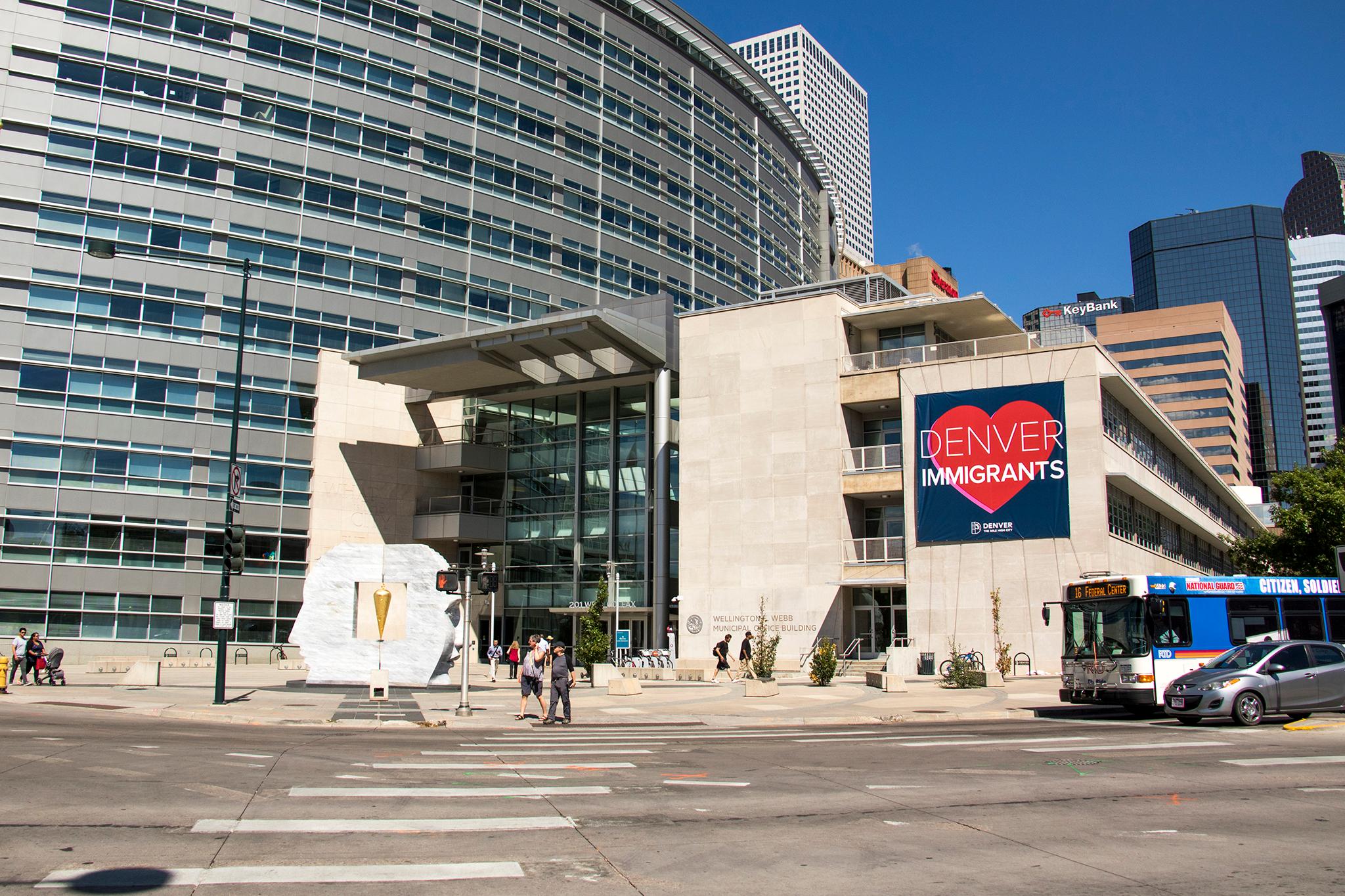
Mahaleris placed the blame on President Joe Biden.
"Denver is only dealing with a fraction of what our small border communities deal with on a day-to-day basis," Mahaleris continued. "Instead of complaining about a few hundred migrants sent from Texas, the City of Denver should be calling out President Biden... Until President Biden steps up and does his job, Texas will continue busing migrants to sanctuary cities to provide relief to our overwhelmed border towns."
When Hancock led the effort, he called on the federal government for more resources. He specifically called out Congress' long split between Republicans and Democrats over how the U.S. should approach immigration. Democrats have criticized Republicans, including Abbott, for gilding their frustrated responses to the federal government with racism and cruelty. On Wednesday, a federal judge ordered Abbott to remove a barrier his office placed in the Rio Grande to physically prevent migrants from arriving, calling it a "threat to human life."
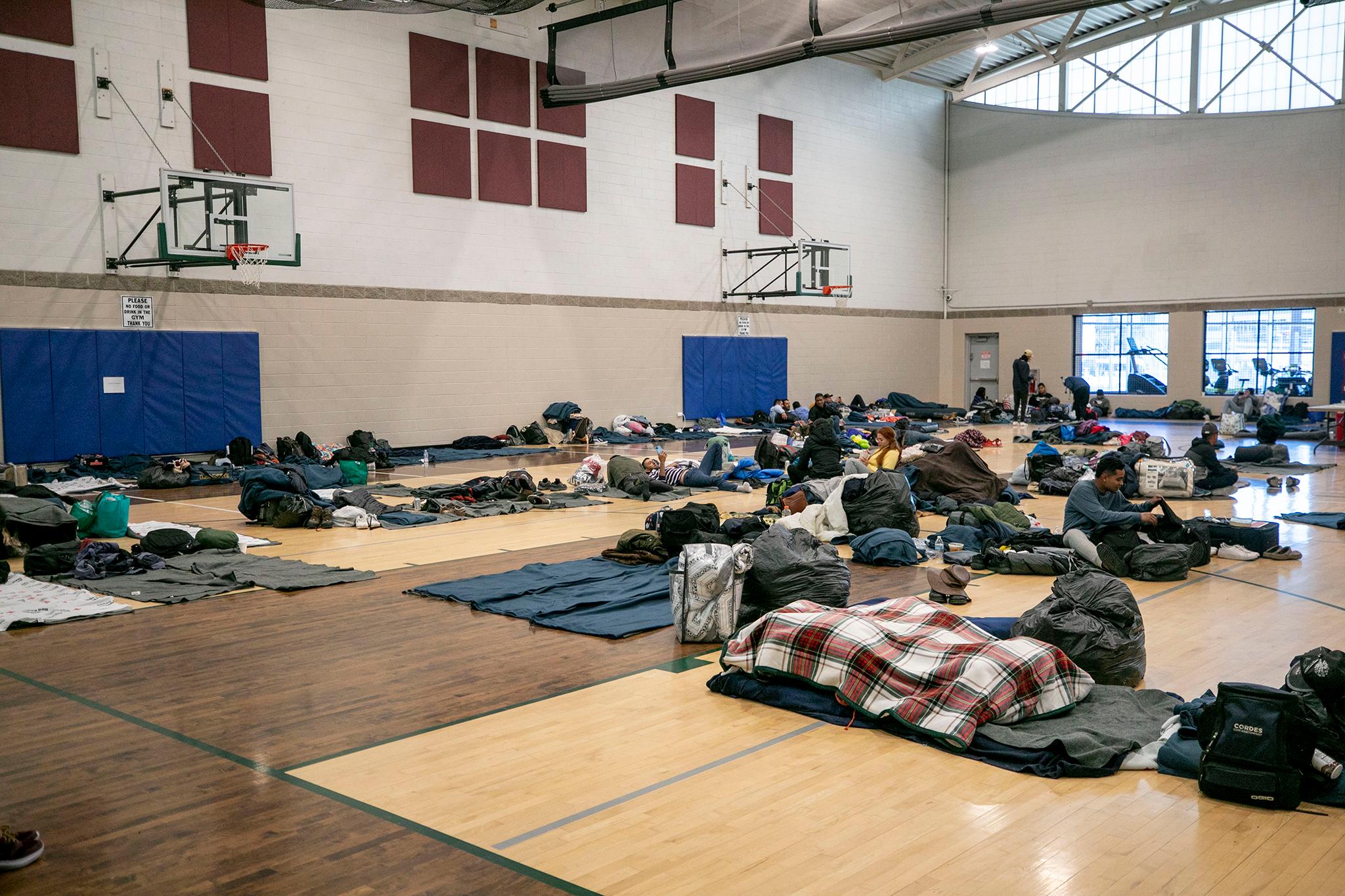
Funding Denver's response remains an open question.
So far, Denver has received $3.5 million from the state and more than $9.5 million from the federal government. But the city has also spent more than $23 million on its emergency response so far. In a letter to the Mayor's office about 2024 budget priorities, City Council requested that the Mayor take into account emergency migrant costs, something the city did not explicitly plan for in 2022 and 2023. Mayor Mike Johnston will release his 2024 budget this month.
Ruiz, with the Migration Policy Institute, said Biden's administration is putting together more money to help cities accommodate newcomers, through the Federal Emergency Management Agency. Still, how cities fare isn't explicitly a responsibility for the president or the federal government.
"Immigration law is pretty clear, and says that the federal government has the authority to say who can come into the United States, but there's no direct requirement for the federal government to supply cities with funding," he said.
Denver officials are grateful for what they've gotten, though they say the city will need more help.
"There is still a need for additional funding to keep this operation of housing and assisting migrants going in the city," Aguilar said. "I know many other cities across the nation as well are also just really making it loud and clear that we need additional [federal] funding."
The city is also continuing to take clothing donations at the Richard T. Castro Human Services Center at 1200 N Federal Blvd., between 9 a.m. and 3:30 p.m. on weekdays. The Newcomers Fund, launched by Hancock and Governor Jared Polis, is also continuing to take monetary donations.
